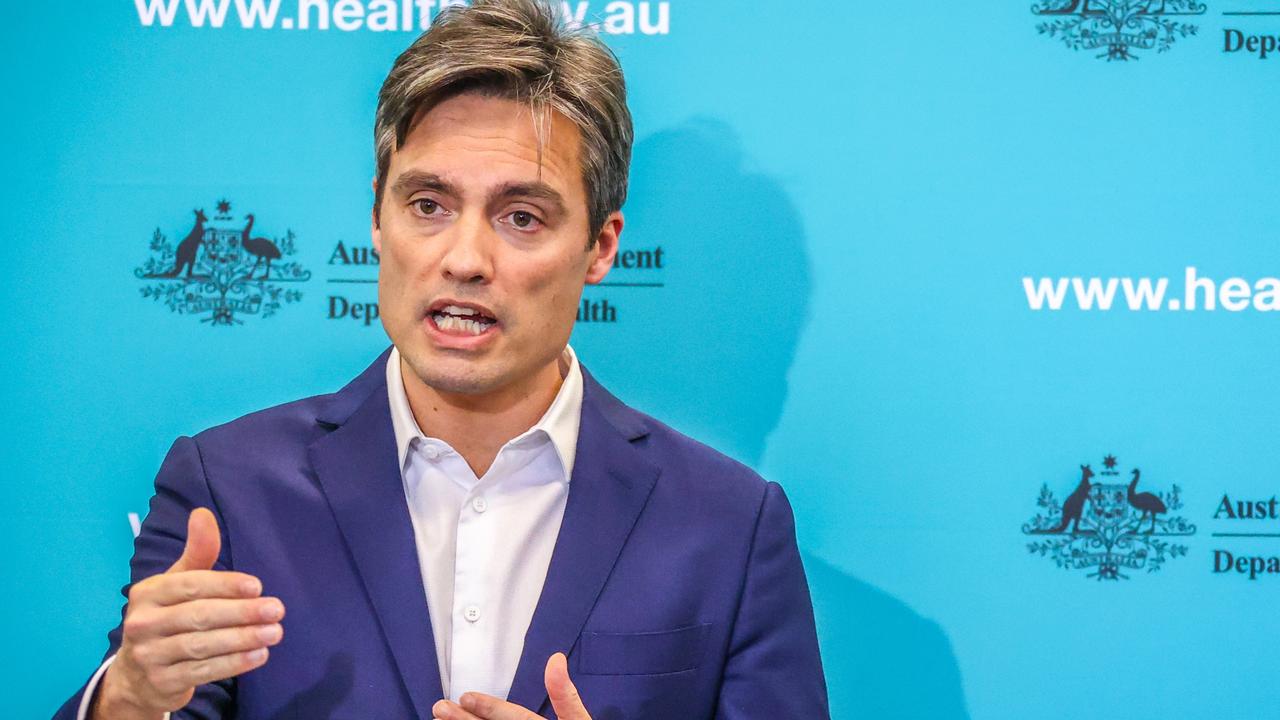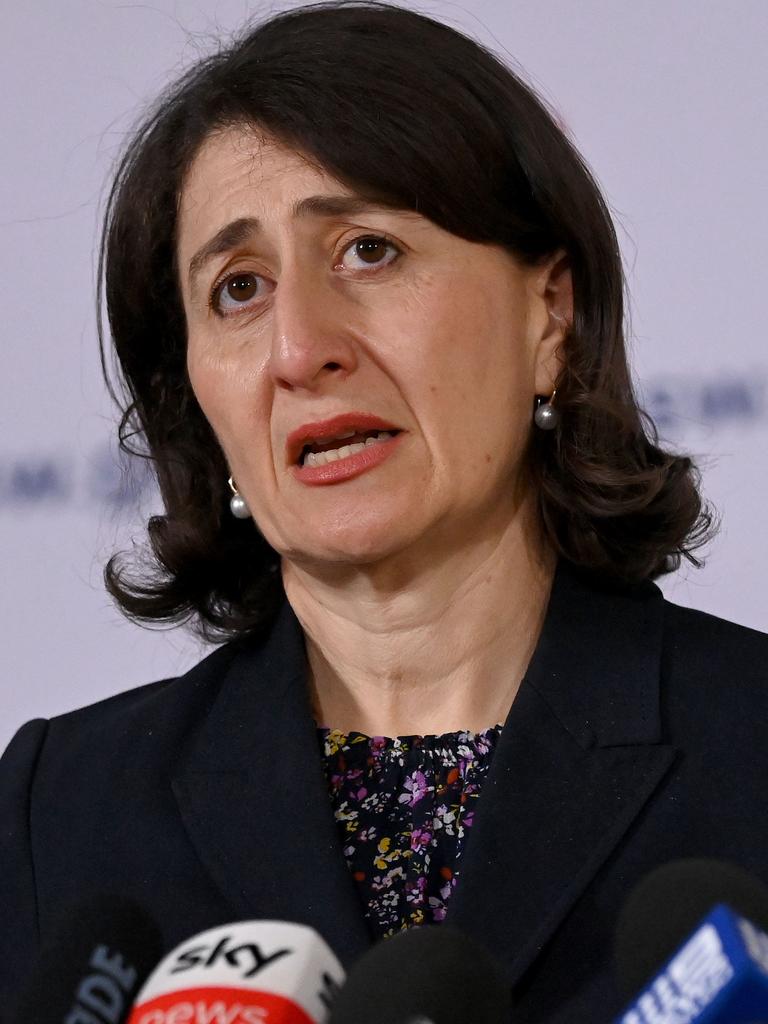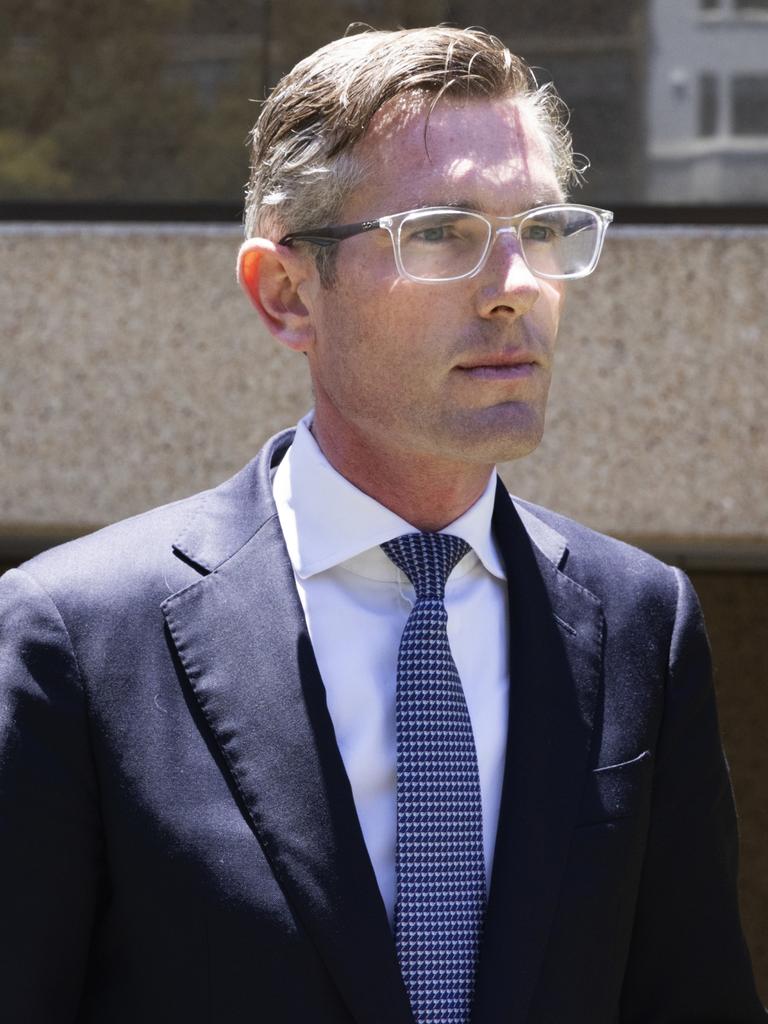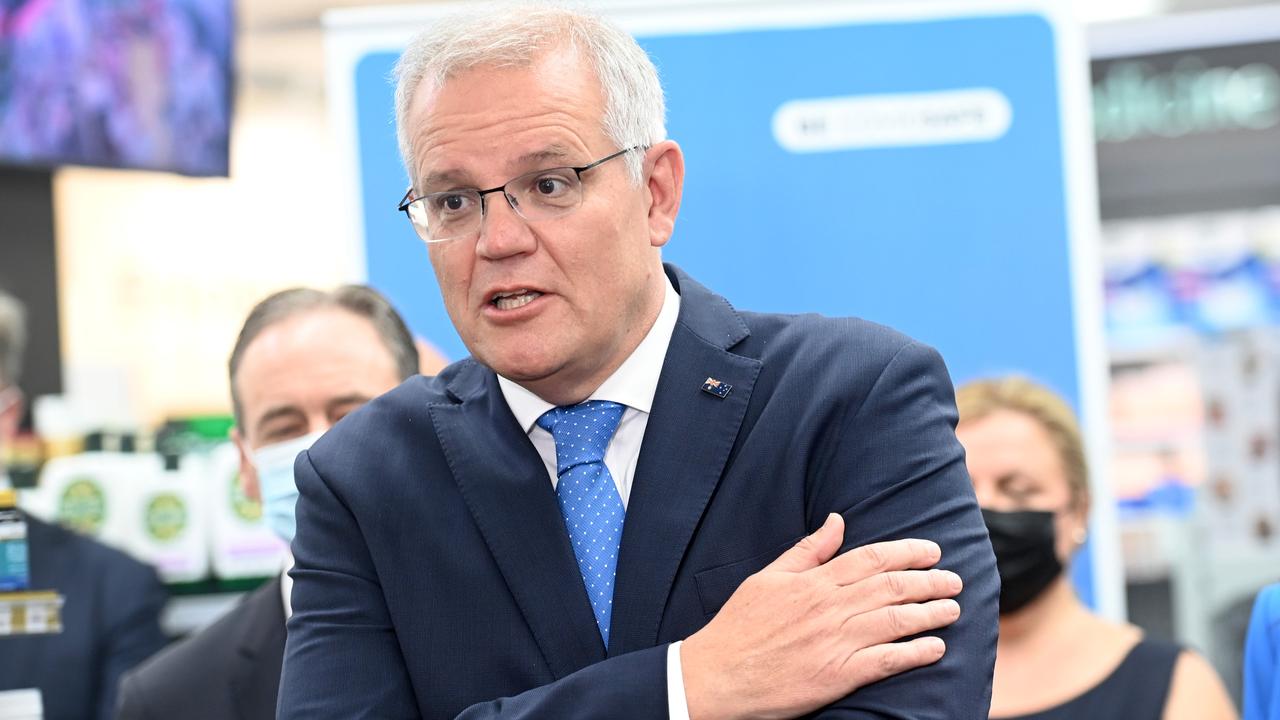Expert says critics calling for more Covid restrictions will be proven wrong
One of Australia’s former top medical experts has hit out at critics calling for more restrictions as cases rise sharply before Christmas.
Australia’s former deputy chief medical officer Dr Nick Coatsworth says critics calling for more Covid-19 restrictions will be proven wrong.
Dr Coatsworth doesn’t think public health is being sacrificed for politics as NSW and Victoria record high numbers of cases following the easing of restrictions.
“The main difference in view is whether we need a light touch with restrictions,” he told news.com.au.
He said some believed the Omicron variant was mild and questioned whether there was a need to take a more aggressive approach to restrictions, while others were more worried about the impact on the health system.
“It’s a public health ethics debate as much as a politics debate,” he said.
He also does not think it is as simple as Labor versus Liberal, or left versus right.
“I know plenty of people who consider themselves both progressive or centre left who do not believe in further lockdowns or tight restrictions,” he said.
Debate is raging in particular in NSW, which has seen a four-fold rise in Covid infections in the past week driven partly by the new Omicron variant.
Some experts as well as the Australian Medical Association (AMA) and Australia’s chief medical officer Professor Paul Kelly are calling for light restrictions including mandatory masks to be re-instated.
Dr Coatsworth does not have knowledge of deliberations in the NSW cabinet and what factors are influencing decisions, but supports the government’s resistance to winding back freedoms.
“My own view is that after two years, unfortunately the government is not in a position that it can jump at the first sign of trouble,” he said. “They would simply not have the public support to do that.”

Dr Coatsworth said the public was now demanding more definitive evidence that Omicron was going to be a burden on the health system.
“There’s a growing sentiment among Australians that people have made a lot of sacrifices in the last couple of years and they may not feel the evidence we have on Omicron justifies extra restrictions,” he said.
While Dr Coatsworth said critics had a right to express their views, the views of groups like the AMA had been consistently contrary to the NSW Government.
“They’ve been very critical of the NSW Government and they’ve ultimately proven to be wrong. They were wrong last Christmas and they’ll be wrong this Christmas as well.”
The AMA argued last year for a widespread lockdown ahead of Christmas and for the cancellation of the New Year’s Eve fireworks as case numbers grew in Sydney’s northern beaches.
Dr Coatsworth said he agreed with the current NSW approach, although he would also support the introduction of modest restrictions for mandatory masks and QR codes.
“It is on the table but given the number of hospitalisations — and it is clear that the government is using that as a benchmark — it’s clear that hospitals are coping so I think they are justified in their decision at this point in time.”
He said it was “critically important” restrictions were not politicised.
“Because if you do do that, you go from generally enormous support for public health measures — which we have seen in the almost 95 per cent vaccination rates — as soon as it is politicised, it is automatically cut down to 50/50.
“There’s only one direction we would be headed — and that’s the US (where vaccination rates are a lot lower).”
NSW decision must be ‘political’
To others, NSW’s reluctance to budge on mask mandates in particular suggests the decision is political.
Burnet Institute epidemiologist Professor Michael Toole said NSW’s cases had increased four-fold, from a seven-day average of 532 cases last Tuesday, to 2274 cases today.
“The decision not to reinstate restrictions can’t be a public health decision, it must be political, serving other objectives of that government,” he said.
“NSW chief health officer Kerry Chant has more or less disappeared from public, she never attends press conferences but we know from one video that she strongly recommends masks indoors but the government does not mandate this,” he said.
“I think this plea for personal responsibility is misplaced, most people will comply with recommendations but there’s a small group that won’t and we’ve seen that among the protesters.”
He said the personal responsibility approach was what Sweden did in 2021 and “that turned out really bad” with 15,000 deaths from Covid in a country of around 10 million people.
In comparison, Australia, with a population of 25 million, has had about 2100 deaths.
“We don’t rely on personal responsibility for seat belts, drink driving or smoking inside restaurants. We do make laws to protect the public health of us all,” Prof Toole said.
Politics does play a role in the pandemic
Former health secretary Stephen Duckett believes politics has “played a role right from the start of the pandemic” and could continue to influence how Covid is managed in Australia as the next federal election looms.
He said the influence of politics could be seen in the different approaches taken on Covid measures among state and federal governments.
“I think it’s pretty obvious there are quite different ideological dispositions for different politicians,” Mr Duckett told news.com.au.
Mr Duckett, who worked in the department while Paul Keating was prime minister and is now the Grattan Institute’s health program director, said this was apparent even among the leaders of the same party.
For example he said the current New South Wales Premier Dominic Perrottet was clearly less in favour of public health measures than his predecessor Gladys Berejiklian.
“Both of them are in a different position to say (Victorian Premier) Daniel Andrews or (Queensland Premier) Annastacia Palaszczuk,” he said.
Mr Duckett said politics could also be seen to be at play in the eagerness of Prime Minister Scott Morrison’s government to be in charge of the vaccination rollout.
“I think the Commonwealth wanted to be seen to be in charge and then failed,” he said.
“Clearly it’s a political play from the beginning of last year.
‘Politics has always played a role, which is not delegitimate in a democracy.”
As the federal election approaches, Mr Duckett said the “political narrative” will become even more important.


Mr Duckett said the PM was already positioning Labor as the party that equals restrictions on liberties, with the Liberals as the party against restrictions.
Today Prime Minister Scott Morrison said he would advise state premiers not to introduce heavy-handed restrictions or lockdowns ahead of an emergency national cabinet meeting on Wednesday.
“What I will be saying to them, and I know a number of premiers agree with this, is we have got to move to the next phase of how we live with this virus,” he told reporters.
“The time for that heavy hand is behind us. We just need to live with this virus sensibly and practically.”
But Mr Duckett said it was a “fine line to walk” as many people did support restrictions.
“It’s a bit of a gamble because the vast bulk of the population across Australia have accepted the state restrictions imposed,” he said.
“We are obviously very tired of those but we are also anxious about public health.”

Economy will be crucial for PM
The link between lockdowns and the recovery of the economy may also playing on the minds of federal politicians.
The NSW lockdown this year is thought to have cost the state as much as $16 billion.
Monash University political scientist Dr Zareh Ghazarian said the state of the economy was important for the Federal Government as it approached an election.
“Certainly for the national government, the way the economy is tracking is very important for the next election,” Dr Ghazarian said.
“That’s what the government has identified as a key strength and an important feature in the story they will put out there, in the hope people will vote for them next year.”
When it comes to state politics, Dr Ghazarian noted Victorians would also head to the polls in November 2022, with NSW voters voting in March 2023 but the issue of lockdowns may not be perceived as negatively among voters.
“Western Australia, Queensland and Tasmania have gone to the polls and the incumbent — the party in power — has been returned comfortably in each of those states,” he said.
“So lockdowns and the way in which the government has managed the pandemic isn’t necessarily having a negative impact on electoral prospects.”
However, the test will be whether the trend continues for the Federal Government with recent polls showing a fall in the PM’s popularity and support for the government.
“It’s not impossible but it’s going to be very hard for them (to win), it’s going to be very close, it’s hard to see a clear result at this stage,” Dr Ghazarian said.
“A lot is riding on the next few weeks, what sort of narrative will they be putting out to get support?”
Dr Ghazarian noted Australia was still months away from an election and once campaigning begins properly, people’s minds would focus.
“Things can change and things can change very quickly. The power of incumbency is not to be discounted.”
Whether or not Australia’s Covid response will play a large part in how people vote is unclear.
“It’s really difficult to tell at this stage,” Mr Duckett said.
“Do they remember the bungled rollouts, or now that they are vaccinated do they not remember that?”






